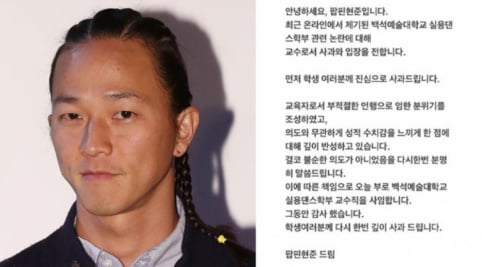
"Why Disney+ of all platforms? If it were Netflix, it would have taken off even in the United States."
Disney+ has been facing a mixed reaction for its lack of sufficient promotional efforts for its Korean series, ‘Moving.’ Despite achieving record-breaking success in Korea and other parts of Asia, the series has failed to garner significant traction in the United States, the world's largest content market. In contrast, 'Squid Game,' a Netflix series, has been a monumental success both domestically and internationally, leading many to question Disney+'s operational strategy.
While 'Squid Game' is hailed as a global sensation, 'Moving's' relative anonymity in the lucrative U.S. market is attributed to Disney+'s perceived weak platform and limited marketing initiatives. Discontent has spilled over with industry insiders commenting on a missed opportunity, "They made the wrong choice with this platform" and "This work deserves better."

In the U.S., the success of non-English content heavily hinges on dubbing, as about half the viewers on OTT platforms prefer dubbed content. This is another area where 'Moving' was dealt a raw deal. When compared to 'Squid Game,' which caters to a global audience with its multilingual dubbing, the absence of a dubbed version for 'Moving' has been criticized as a cost-cutting measure by Disney+.
Interestingly, 'Moving' was released in the U.S. through Hulu, not directly through Disney+. Despite the minimal promotion, the series managed to become the most-watched K-drama on Hulu, solely on the strength of word-of-mouth buzz. This performance underscores Disney+'s unimpressive promotional strategy.

Industry professionals are not shy about expressing their regret, going as far as asserting that 'Moving' could have been a globally popular hit like 'Squid Game' if Netflix had picked it up. A representative from a content production company stated, "Disney+ has yet to match, let alone surpass, Netflix's streaming service environment, consequently resulting in many quality works being overlooked."
Users in Korea also voiced their grievances against Disney+ for drawbacks such as an unfriendly subtitle feature and unsatisfactory customer service. These flaws further contribute to Disney+'s deteriorating image, with critiques likening Disney+ to a "neighborhood corner store" as opposed to the "global streaming service" it claims to be. Leading actor Ryu Seung Ryong from 'Moving' even posted on his social media about how to watch the next episode, stating, "Something seems seriously wrong."

Despite the criticism, Disney+ plans to up its membership price in Korea, a decision that has attracted further backlash considering the lack of hit content. The new price, starting in November, will rise from 5,900 KRW (4.37 USD) to 9,900 KRW (7.34 USD) per month.
'Moving' is a captivating action series narrating the story of children with concealed superpowers and parents hiding somber secrets about their past, is earning rave reviews for its gripping plot, engrossing characters, and stunning visuals. The 20-episode series has been hailed as a "masterpiece," with CNN lauding it as "The star-studded Disney+ Original has become its most successful K-drama globally and the most popular on Hulu in the US, beating out the likes of Star Wars and the Marvel Cinematic Universe to become Disney’s most watched series across the Asia Pacific region." Given this acclaim, it appears that the critique lies not with the show but with the platform that failed to recognize and channel its potential.
 SHARE
SHARE











































Most of the k-dramas that are on Disney+ aren't even available in the US on Disney+. If you're lucky they'll be on Hulu but even then that doesn't happen often. I don't know why Disney+ licenses all these k-dramas but doesn't air them in the US, it's not like they're being licensed on other services in the US.